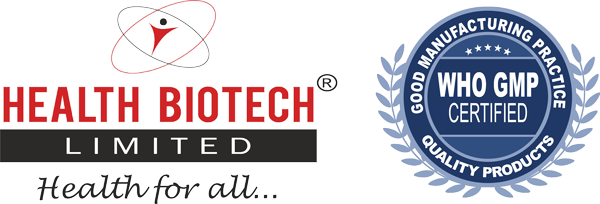The Pharma industry of India has gained exponential growth in the past decade. The COVID-19 pandemic presented the pharma sector in a new light and introduced new opportunities for pharma industry players. India has also emerged as one of the leading destinations for high-end diagnostic services with humongous capital investment for advanced diagnostic facilities and caters to a greater proportion of the population. For the industry to function smoothly, it is of utmost importance that the supply chain is smooth as well. COVID-19 presented huge challenges and disruptions to supply chain management, but the industry fared well. Health Biotech’s Director believes that the pandemic was a huge challenge but also provided India with an opportunity to become self-reliant in healthcare.
Leading pharma companies have successfully shifted their supply chains to accelerate growth and manage costs. But these plans need to be full-proof else the companies can suffer huge losses. Amid this growth, supply chains have become increasingly global, complex, and opaque. As a result, more companies are outsourcing production to contract manufacturers, adding new modalities and exploring novel ways to reach patients.
Parmjit Arora Health Biotech Director believes that supply-chain risks are unavoidable. However, companies can minimize their disruptive effects through better visibility, rigorous risk management, and newer technologies that help companies to be prepared for shocks. “Building supply-chain resilience begins with understanding the nature of the chain’s risks. Natural disasters, international trade tensions, cyberattacks, and global pandemics are just a few of the shocks that can immobilize pharma companies. One needs to plan in advance to be ready to face any challenging situation,” says Parmjit Arora. Health Biotech’s Remdesivir was exported to more than 50 countries during the pandemic, and it was not an easy task to maintain a smooth supply, especially during such huge crisis. But the dedication of all the employees and proper infrastructure and logistics helped achieve the mission.
Pharma companies in comparison to other industries, are more insulated from supply-chain shocks because they generally hold higher inventory levels, but that can’t protect them from everything. Trade disputes and cyberattacks create the greatest risk of supply-chain disruption in pharma sector. That’s primarily because of the industry’s abundant proprietary knowledge, capital intensity, international data flows, and a moderate level of digitization. Trade disputes pose a threat because of the industry’s high levels of international trade and constant pressure to relocate parts of the supply chain for economic and various other reasons. Companies can lower their exposure to single sources and other supply-chain risks by expanding their sources from where they buy materials. For example, to secure an input better, a company might revert to domestic production, nearshore the supply, or offshore to new locations.
Pharma companies have also started adopting advanced systems for transparency that are expected to go a long way in ensuring genuine medicines, vaccines, and equipment reach the patients. Over 750 companies have adopted GS1 standards since the start of the pandemic to safeguard their products, such as sanitisers, masks, drugs, medical devices, test kits, etc., to meet global standards. In addition, GS1 standards help address the need for traceable vaccines and medical products to address supply chain safety and help tackle the issue of counterfeit products.
After the pandemic, governments and organisations are more focused on building digital infrastructure and preventive healthcare, which will pave the way to a brighter future for the healthcare industry.
Also Read:- Health Biotech’s Remdesivir: The Corona Warriors of India
